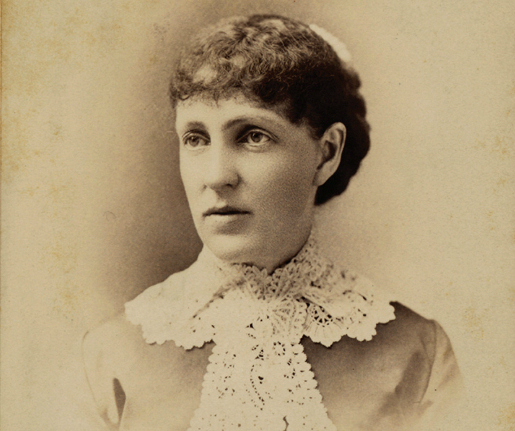This article was written by Michelle Henry, who has served as Chautauqua County Historian/Records Management Coordinator since 2000. Ms. Henry is certified as a New York State Registered Historian, received the 2010 Wheeler B. Melius Award for outstanding service to records management in NYS, and the 2011 Julia Reinstein Historian Award for Excellence. This post serves as an introduction to Ms. Henry’s in-depth article “Katherine ‘Kate’ Stoneman: Raising the Bar for Women” in Issue 12 of The Historical Society of the New York Courts’ Judicial Notice, a journal of articles of historical substance and scholarship that uniquely focuses on New York legal history. This latest issue of Judicial Notice has already been shipped out only to Society Members. Don’t miss out and Join the Society!
If you have received Judicial Notice, we would like to hear your thoughts about all of the wonderful articles, including this one. What new insights did you learn from the articles? What topics are you looking forward to in the next issue? Comment below!
Photo: Portrait of Kate Stoneman, courtesy of the Jamestown City Historian’s Office.
Kate Stoneman was born in the western frontier county of Chautauqua, New York in 1841, a time when women didn’t have many legal rights or career opportunities. But with the support of her “liberal-minded” parents, she pursued an education and a career previously unattainable for women, and was involved in several of the greatest reforms of the 19th and early 20th centuries.
Stoneman was a teenager when Susan B. Anthony held a Women’s Right Convention in the County Courthouse at Mayville, NY in 1854. A county political equality committee was formed, and later became the largest such committee in the state. The women’s rights convention was covered in the local newspapers, which may have been an early source of inspiration for Kate. She undoubtedly had a thirst for knowledge, because she read and re-read one of the few books that her family owned – a musty old law book.
Stoneman pursued a career in teaching at the Albany Normal School, and utilized her familiarity with legal terminology to work as a copyist for a court reporter to support herself. Upon graduation, Stoneman began a career teaching penmanship and drawing. Weightier subjects in science and math were considered too rigorous for a woman’s constitution and were believed to render a woman sterile. Women who rebelled against Victorian ideas of domesticity risked being declared insane, and leading psychiatrists claimed that cure for hysteria (a female malady) for an unmarried woman was the necessary male dominance of marriage.
Stoneman’s interest in the law was reignited when she served as executrix for a relative’s estate. With access to a friend’s private law library, Kate read law books whenever she wasn’t teaching or advocating for women’s rights or temperance. She read during the summer and at night and on weekends. She also served as Secretary of the Albany County Women’s Suffrage Society at a critical time in the Suffrage movement. In 1880, the suffragists succeeded in getting a bill passed that would allow women to participate in school elections.
Stoneman’s work in promoting the school election legislation prepared her for another challenge, which was much more personal in nature. Kate had been reading law in earnest for several years, and her friends encouraged her to take the bar exam. With no formal legal education, in 1885, Stoneman passed both the written and oral components of the bar exam. Her application for admission to the bar was denied: there was no precedent for a woman to practice law; the statutory provision required that every applicant be a male citizen of the state.
As a suffragist activist, Stoneman had learned how to navigate through the legislative houses. She and her friends quickly drafted a bill in the Assembly that would allow women to practice law. It passed, and after being rejected by the Senate and reintroduced, it passed on May 19th, 1886. At 45 years of age, Kate was the first woman in New York State to be admitted to the bar.

